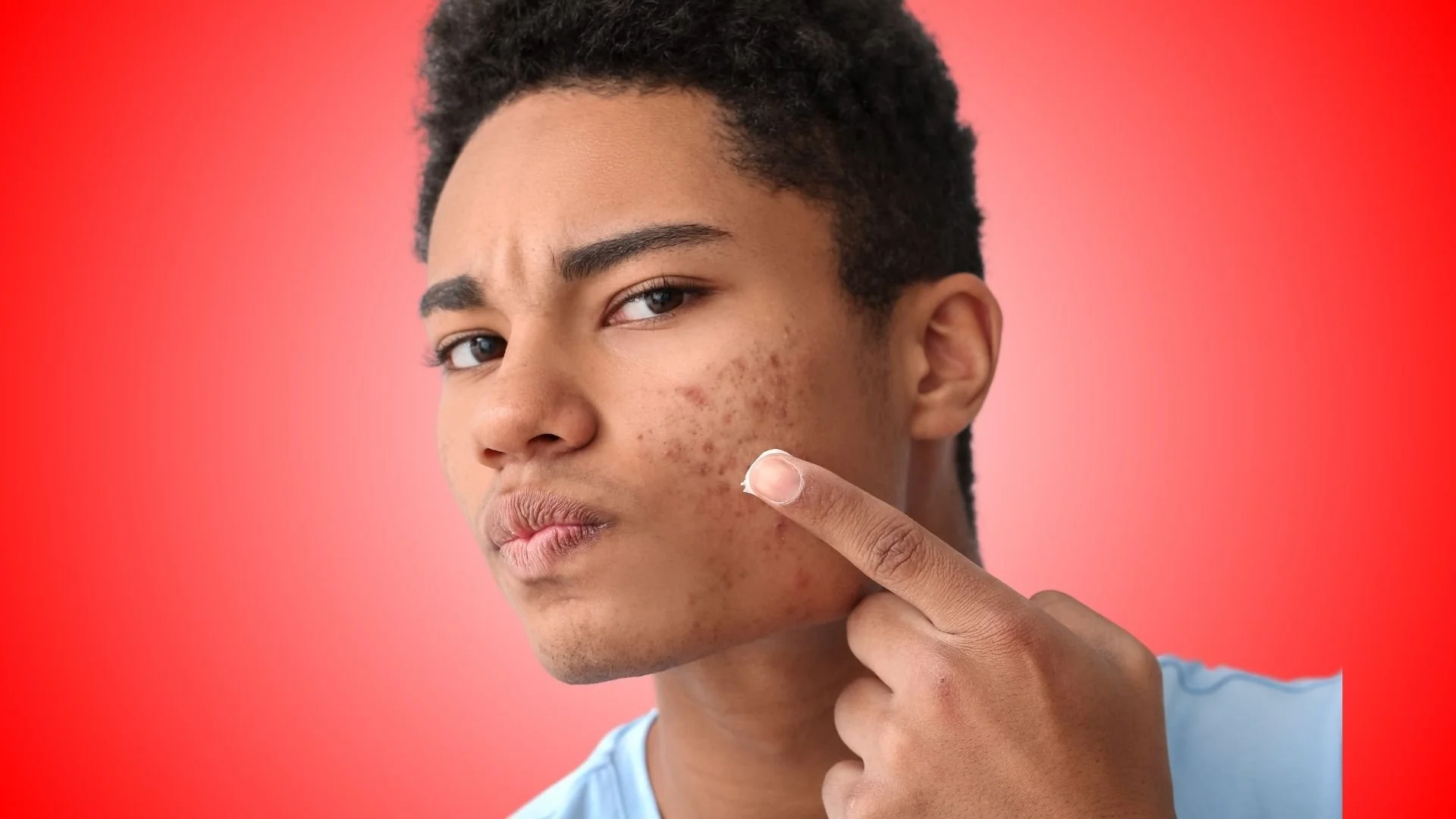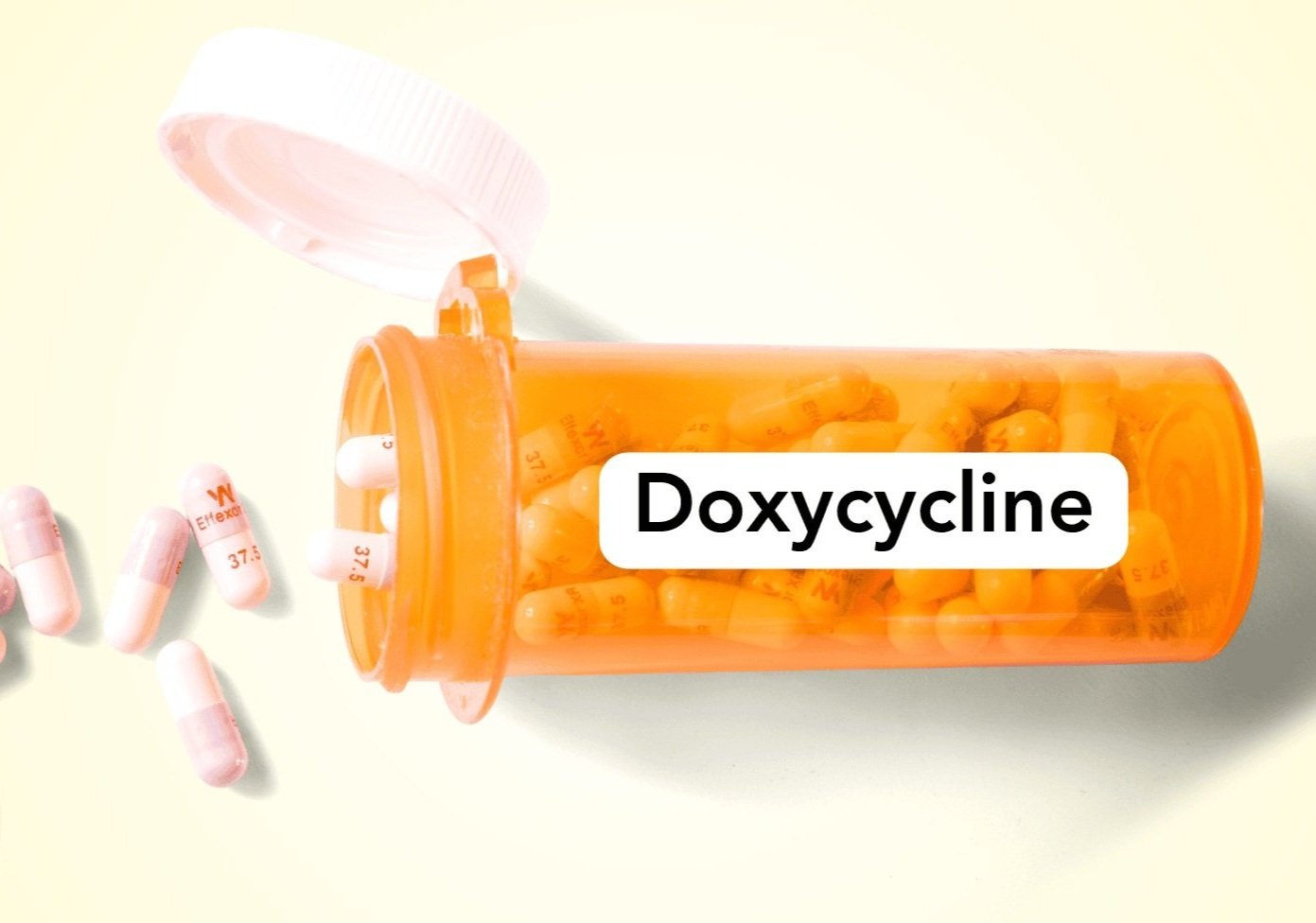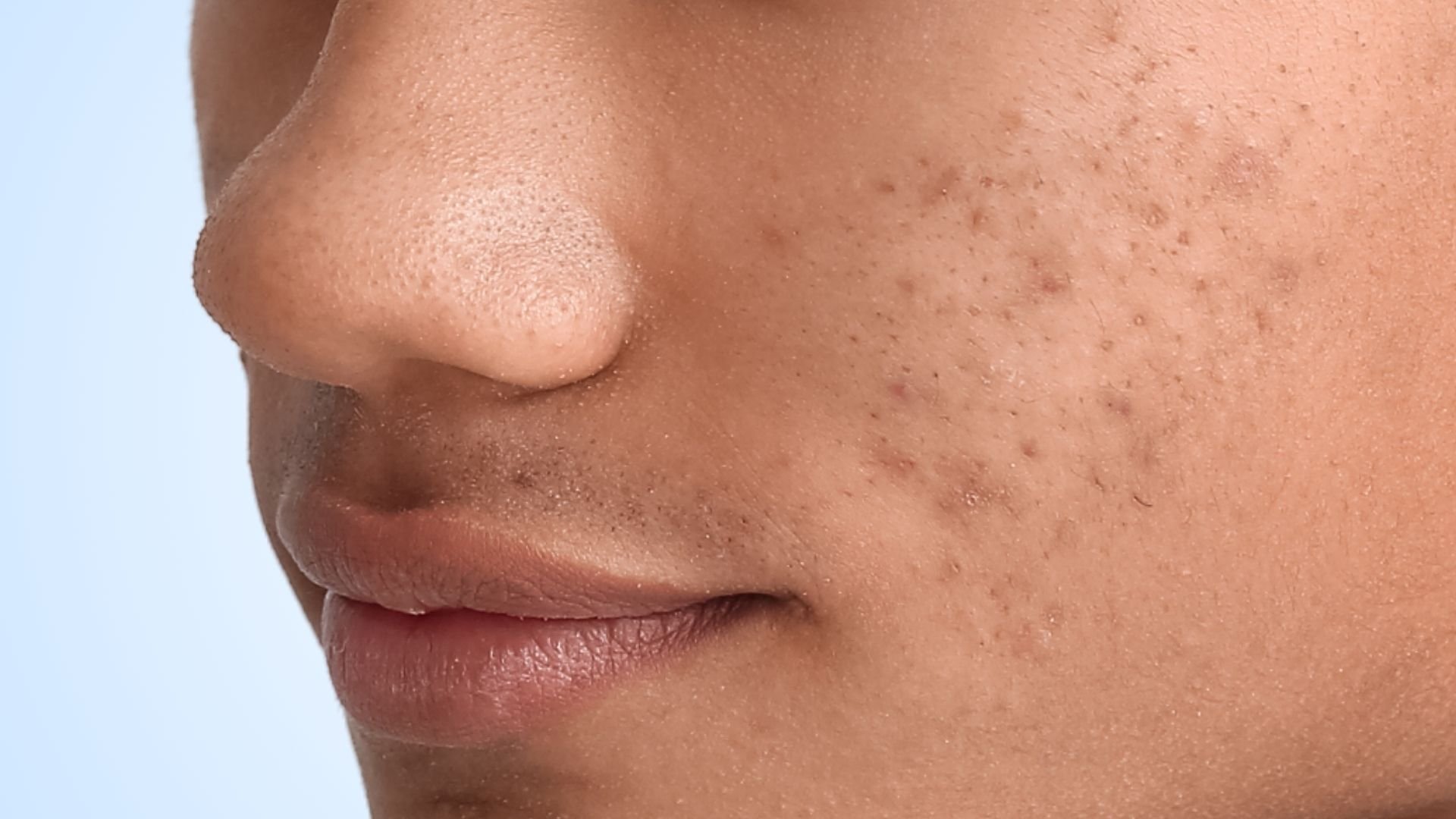
Doctor’s Note: Your Essential Guide to Acne Treatments
As dermatologists, we treat many patients with acne, a common skin condition that affects people of all ages. Acne occurs when hair follicles become clogged with oil, dead skin cells, and sometimes bacteria. This leads to pimples, blackheads, whiteheads, and sometimes cysts. Understanding how acne develops, what causes it, and the most effective treatments can help you manage and prevent breakouts. Whether you're dealing with occasional pimples or more severe acne, this guide will help you understand your skin and take the right steps for clear skin.
What is Acne?
Acne is a common skin condition that affects people of all ages, but it is most common during the teenage years. It occurs when the pores of your skin become blocked with oil, dead skin cells, and bacteria. This can lead to pimples, blackheads, whiteheads, and sometimes even painful cysts or nodules. Acne can appear on the face, chest, back, and shoulders.
Normally, an oil gland (AKA sebaceous gland) produces oil (AKA sebum), which flows into the hair follicle. The oil then spreads onto the skin surface. In acne, four things go wrong:
1. Oil gland overproduces oil
2. Dead skin cells clump together
3. Bacteria grows
4. Causes inflammation
What Causes Acne?
So why does this happen? There are many causes that drive this cycle, the most common being:
Excess Oil Production: Your skin produces oil to keep it hydrated, but too much oil can clog pores.
Dead Skin Cells: When dead skin cells accumulate, they can mix with oil and clog pores.
Bacteria: The bacteria Propionibacterium acnes can grow in clogged pores, leading to inflammation and pimples.
Hormones: Hormonal changes, especially during puberty, can increase oil production and cause acne.
Genetics: Blame Mom and Dad.
Diet: Controversial, though some studies indicate that certain foods, like dairy products and high-sugar foods, can trigger or worsen acne in some people.
Medications: Certain meds (hormones, steroids, lithium, etc)
What Makes Acne Worse?
Several factors can exacerbate acne:
Touching Your Face: Constantly touching your face can transfer bacteria and oil from your hands to your skin.
Using Harsh Skincare Products: Products with strong chemicals can irritate your skin and worsen acne.
Stress: Stress can increase hormone levels, leading to more oil production and breakouts.
Diet: Foods high in sugar and dairy can trigger acne in some people.
Not Removing Makeup: Sleeping with makeup on can clog your pores and cause breakouts.
Sweat and Friction: Sweat and tight clothing can irritate your skin and cause acne, especially on your back and chest.
Poor Sleep: Makes everything worse!
Stress: Makes everything worse!
Oftentimes, patients with acne find it difficult to pinpoint their exact trigger. If you don't know what is flaring you, it is important to keep a daily journal to record the day's foods/stressors/events to look back and find a commonality in your triggers. Download a daily printable journal below!
Acne Treatment Overview
Acne comes in different types, and each type needs its own treatment. For blackheads and whiteheads, which are the mildest types, over-the-counter products like salicylic acid and retinoids work well. Mild acne, with a few small pimples, can also be treated with products like benzoyl peroxide and retinoids.
If acne gets worse and doesn’t go away, like in mild to moderate acne, you may need prescription treatments. These can include topical antibiotics and topical retinoids, which a doctor can give you. For moderate acne, which has more pimples and might hurt, prescription treatments like oral antibiotics, birth control pills (for women), spironolactone (also for women), or Accutane may be needed.
Severe acne is the most serious type, with painful deep cysts or lumps. For severe acne, a strong prescription medicine like Accutane is often recommended by a dermatologist. Each type of acne has treatments that can help clear the skin and stop more breakouts.
Blackheads
Salicylic Acid (OTC)
Retinoids (OTC)
Mild Acne
Benzoyl Peroxide (OTC)
Retinoids (OTC)
Azelaic Acid (OTC)
Sulfur (OTC)
Mild/Moderate Acne
Topical Antibiotics (Rx)
Topical Retinoids (Rx)
Moderate Acne
Oral Antibiotics (Rx)
Birth Control Pills (Rx for women)
Spironolactone (Rx for women)
Accutane (Rx)
Severe Acne
Accutane (Rx)
OTC = Over-the-Counter
Rx = Prescription
Best Products for Acne
Comedonal acne, including blackheads and whiteheads, can be effectively treated with products containing salicylic acid and retinoids. Salicylic acid is excellent for unclogging pores and exfoliating the skin, while retinoids help increase cell turnover and keep pores clear.
Texture: Rich, creamy lather
Benzoyl Peroxide (4%): Treats and prevents acne
Glycerin: Hydrates
Sodium Hyaluronate: Retains moisture
Best For: Moderate to severe acne-prone skin
Texture: Lightweight, liquid
Salicylic Acid (2%): A beta hydroxy acid (BHA) that exfoliates the skin + unclogs pores
Green Tea Extract: Calms and soothes skin
Glycerin: Hydrates
Best For: Oily, acne-prone
Texture: Clear gel, lightly foams
Salicylic Acid (2%): Exfoliates and unclogs pores
Niacinamide: Calms and soothes skin
Ceramides: Restore skin barrier
Best For: Oily, acne-prone skin
Texture: Clear gel, smooth finish
Adapalene (0.1%): A retinoid that increases cell turnover and prevents clogged pores
Niacinamide: Calms and soothes skin
Ceramides: Restores skin barrier
Best For: Oily, acne-prone skin, especially for those with mild to moderate acne
Best Prescriptions for Acne
If your acne is deeper or not controlled by the above products, it's best to see your dermatologist. Sometimes, prescription medication (whether it's topical or oral) is necessary to clear more stubborn acne. Here is a look at some of the more common prescriptions.
Topical antibiotics help reduce bacteria and inflammation on the skin, making them effective for treating acne. They are generally well-tolerated and come in different forms, such as lotion (which is moisturizing), gel (better for oily skin), and wipes (convenient for use after workouts). Examples include clindamycin and erythromycin.
Spironolactone is a medication that helps stabilize hormones, making it particularly effective for women with hormonal acne. It works by blocking certain hormones that can trigger acne, helping to reduce breakouts. This treatment is available by prescription and can be a good option for those whose acne is linked to hormonal changes.
Topical retinoids help unclog pores and reduce inflammation, making them great for treating acne. They should be used at night because they can make your skin more sensitive to the sun. While they can be very effective, they may cause some irritation, especially when you first start using them. Over-the-counter examples include Differin and Retinol. Prescription retinoids include Tretinoin, Tazorac, and Aklief.
Birth control pills can help regulate hormones that often cause acne in females. By balancing hormone levels, these pills can reduce acne breakouts, especially those linked to menstrual cycles. Some common birth control pills prescribed for acne include Yaz, Estrostep, and Ortho-Tricyclin.
Antibiotic + Benzoyl Peroxide creams are a 2-in-1 treatment that combines the benefits of both ingredients in one easy-to-use product. The antibiotic helps reduce bacteria and inflammation, while benzoyl peroxide kills acne-causing bacteria and helps unclog pores. Examples include Duac and Benzaclin. These combo products can be irritating, though.
Oral antibiotics help reduce bacteria and inflammation from the inside, making them effective for moderate to severe acne. These medications work by targeting the bacteria that contribute to acne and calming inflammation. Common antibiotics include doxycycline, minocycline, and Bactrim. These are typically prescribed when topical treatments are not enough to manage acne. We try not to use antibiotics long-term, though.
Retinoid + Benzoyl Peroxide creams combine two powerful acne-fighting ingredients into one easy-to-use product. The retinoid helps unclog pores and reduce inflammation, while benzoyl peroxide kills acne-causing bacteria and prevents future breakouts. Examples include Epiduo and Epiduo Forte. These combo products can be irritating, though.
Accutane (isotretinoin) is a medication used for severe acne that hasn’t responded to other treatments. It is highly effective but comes with many potential side effects, the most common being dryness of the skin, lips, and eyes. Because of its strong effects, Accutane requires regular bloodwork, pregnancy tests, and frequent follow-ups with a dermatologist to monitor progress and side effects. It is typically prescribed when other treatments haven’t worked.
Best Procedures for Acne
In addition to over-the-counter products and prescription medications, various procedures can be effective in treating acne and reducing scars. These treatments often target the deeper layers of the skin to address the root causes of acne, such as excess oil production and clogged pores, while also helping to heal the skin and improve its texture. Many procedures can help clear up existing breakouts, prevent future ones, and minimize scarring, giving you more options for managing acne beyond just topical treatments. Each procedure works differently and can be customized to meet your specific skin needs.
Chemical Peels
Topical acid application exfoliates the skin and unclogs pores by removing the top layers of skin. It can cause side effects like redness and peeling.
Lasers
Aviclear, also known as "Laser Accutane," uses laser technology to target bacteria and reduce oil production, helping clear acne and improve scars.
RF Microneedling
RF microneedling for active acne uses tiny needles and radiofrequency energy to reduce oil production. Examples include Vivace and Morpheus8.
Steroid Injections
Steroid injections are corticosteroid shots used to treat large, painful cysts. They work by rapidly reducing inflammation. Side effects can include skin thinning and discoloration.
Okay, those treatments are for active acne... what if we don't have active acne? What if we have old red/brown/white spots left over? Are there treatments for that? Of course!!
Acne Marks vs Acne Scars
After acne, your skin can be left with different kinds of marks: PIE, PIH, and scars. PIE, or Post-Inflammatory Erythema, appears as red or pink spots caused by damage to tiny blood vessels. PIH, or Post-Inflammatory Hyperpigmentation, shows up as dark brown or black spots due to increased melanin, which is the skin’s pigment. Acne scars, however, are different because they change the skin's texture, creating dents or raised areas. While PIE and PIH usually fade over time, scars are more permanent and might need treatments like microneedling or laser therapy to improve.
Red Spots
AKA: “Post Inflammatory Erythema”
Appearance: Red spots after pimple resolves
Cause: Damage to blood vessels
Skin Type: Fairer skin tones
Treatment: PDL laser, Azelaic acid, Niacinamide
Scar? NOT A SCAR; will resolve with time
Dark Spots
AKA: “Post Inflammatory Hyperpigmentation”
Appearance: Dark spots after pimple resolves
Cause: Damage to melanocyte cells
Skin Type: Darker skin tones
Treatment: Sunscreen, Retinol, Hydroquinone, Peels, Azelaic acid, Niacinamide
Scar? NOT A SCAR; will resolve with time
Acne Scars
AKA: Icepick, Boxcar, or Rolling Scars
Appearance: Sunken or raised skin after pimple resolves
Cause: Damage to collagen
Skin Type: All
Treatment: Lasers, Fillers, Microneedling
Scar? SCAR. This will NOT resolve with time; procedures are needed to reduce appearance.
Acne FAQs
Does squalane cause acne?
Squalane is non-comedogenic and unlikely to cause acne. In fact, it’s often used to hydrate the skin without clogging pores, making it suitable for acne-prone skin.
Can snail mucin cause cystic acne?
Snail mucin is generally safe for most skin types and is unlikely to cause cystic acne. However, individual sensitivities or reactions to other ingredients in products containing snail mucin may contribute to breakouts.
Does touching your face cause acne?
Touching your face frequently can transfer bacteria, dirt, and oils from your hands to your skin, potentially clogging pores and leading to acne.
Does almond milk cause acne?
Almond milk is typically low in hormones compared to dairy milk, but some brands contain added sugars, which may contribute to acne for some individuals.
Can weed cause acne?
Weed itself does not directly cause acne, but it can affect hormones, increase sebum production, or lead to behaviors like touching the face, which may indirectly contribute to breakouts.
Does weed cause acne?
Weed can potentially contribute to acne indirectly by influencing hormones, increasing stress, or stimulating oil production, though more research is needed to establish a direct link.
Can hard water cause acne?
Hard water can leave a residue of minerals on the skin that may clog pores, disrupt the skin barrier, or worsen acne, especially for sensitive skin types.
Does smoking weed cause acne?
Smoking weed may contribute to acne by increasing oil production, causing dehydration, or indirectly promoting behaviors like touching the face. However, the link is not definitive.
Can hyaluronic acid cause acne?
Hyaluronic acid is non-comedogenic and unlikely to cause acne. However, reactions to other ingredients in products containing hyaluronic acid could potentially lead to breakouts.
Does Adderall cause acne?
Adderall can contribute to acne in some individuals due to its potential effects on stress hormones and oil production, as well as behaviors like skin picking.
Does smoking cause acne?
Smoking can worsen acne by reducing skin’s oxygen supply, increasing inflammation, and potentially clogging pores with toxins.
Will the tanning bed help acne?
Tanning beds may temporarily reduce acne by drying out the skin, but they often worsen it in the long term by causing dryness, irritation, and increased oil production. Additionally, tanning damages skin and increases the risk of skin cancer.
Does dermaplaning cause acne?
Dermaplaning is unlikely to cause acne when performed correctly, but improper technique or using contaminated tools can lead to irritation or breakouts.
Does peanut butter cause acne?
Peanut butter is not a direct cause of acne, but its high-fat content or added sugars in some brands may contribute to breakouts for some people.
Does pre-workout cause acne?
Pre-workout supplements may contribute to acne due to added stimulants, artificial ingredients, or increased sweating during exercise.























